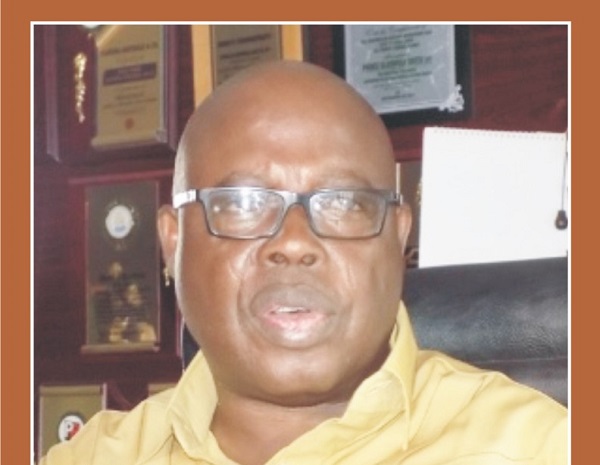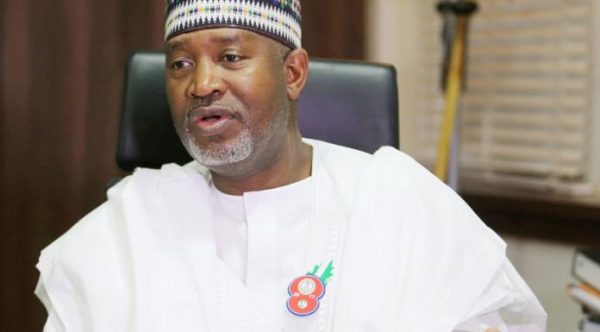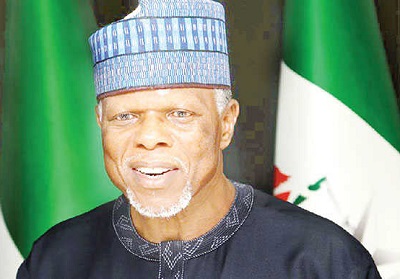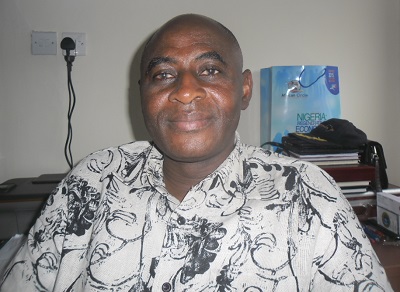I CARE INTERVIEW
Freight Forwarders’ Interest In CRFFN Governing Council Fueled By POF – Shittu
By Kenneth Jukpor
Prince Olayiwola Shittu is a former President of the Association of Nigeria Licensed Customs Agents (ANLCA). In this exclusive interview with MMS Plus newspaper, he speaks on the motivation of most freight forwarders ahead of the Governing Board elections of the Council for the Regulation of Freight Forwarding in Nigeria (CRFFN). Shittu also addresses other pertinent maritime sector issues ranging from Customs operations, deployment of scanners, fiscal policies, among others.
Enjoy it:
Registered associations under CRFFN met recently in Apapa to discuss several pertinent issues, including the upcoming CRFFN Governing Council elections. How would you rate this development?
Most of those going into the CRFFN Governing Council see it is an opportunity to better their address their monetary needs. They don’t have the interest of the industry at heart. My only worry is that the federal government is not ready to look into the various allocations and activities of the previous administration. I’m told that the Minister of Transportation, Hon. Rotimi Amaechi has looked into CRFFN and set up an investigation panel to look into some aspects of the Council’s management. I don’t know why they wouldn’t have used independent investigators instead.
However, whatever would motivate someone to buy form for N500,000 to get into the Governing Board of CRFFN shows that such a person does not have the interest of others at heart. So, the current state of things is a clear signal that we can’t get it right with regards to CRFFN.
If you look at the meeting the freight forwarding groups had in Lagos recently, you would observe that the people who converged at that meeting isn’t a sufficient representation of stakeholders in Lagos alone. If only 50% of the freight forwarding practitioners in Lagos are to gather, wouldn’t that exceed the number recorded at the Rock View hotel in Apapa? I’m only referring to those among the five accredited associations of CRFFN at the moment.
One can deduce from the number of participants at that summit that all those who converged that are doing everything possible to negotiate for themselves and their cronies. The truth is that a lot of genuine freight forwarders don’t care what happens as long as they can find ways to get their jobs done. Everybody knows what they are doing; these individuals want to capture the soul of CRFFN and be able to dictate to the Registrar how to run the Council in a manner that is beneficial to them. Others are only interested in the luxurious government cars and other perks of being a member of the Governing Board.
There are allegations that the rush among freight forwarders to get into CRFFN Governing Council is to access part of the monies from Practitioners Operating Fees (POF). Could these fears about CRFFN Governing Board members eyeing POF be real?
Those who were vehemently asking for POF to be paid otherwise CRFFN will not survive; they have ulterior motives. There are so many government agencies that work on budget and they don’t go pursuing people to raise money. I am also informed that the contractor that is ware-housing the money on behalf of the CRFFN is given 40% collection why people want to go to the Council so that they can take part in that 40%. That 40% is to take care of people’s interest, why should the consultant take 40% for a collection that CRFFN can do by itself? Think about this deeply and also note that the money would initially go into the Treasury Single Account (TSA). So, that is the motivation for them rushing to go into the CRFFN Governing Council.
Everywhere you look in the industry today, people are just there to make money and they will tell you that “that’s your headache, you must make money”.
Recently we’ve seen a move by Nigeria Customs Service (NCS) to start collecting excise duties on some items, some of items, such as water, carbonated drinks, tiles, etc. What’s your take on this development?
Since the federal government began giving revenue target to Customs, they became emboldened to make various moves to rake in as much money as they possibly can. The problem really isn’t the Customs themselves because the government has given them the power to do so.
There has always been excise duties but at one stage they decided to stop the excise duty on some of these products and the question is why return to collect duties on these items and why now? Definitely, this will lead to inflation because the cost of those essential commodities will increase. I don’t know why government is making things more difficult for the people with the inflation in Nigeria already higher than most countries in the world.
Currently, people are complaining that they have jacked up the Pre-Arrival Assessment Report (PAAR). Despite increasing the value of PAAR, they still raise Debit Notes at the field to say that what PAAR did was wrong. Why can’t we have a centralized place to resolve all these issues and just document all of it and go? On the highways, we still have Customs units like the Federal Operations Unit (FOU) that would say both PAAR and the releasing officers at the ports were wrong and issue new DNs. When is it enough to say you have met with the expectations of Customs?
Was PAAR originally targeted to generate revenue or act as an additional document to ease and expedite Customs operations with regards to cargo clearance?
At the onset, we agreed that destination inspection was better than pre-shipment inspection. PAAR was to be a final document to fast track the process. This was what we agreed with the late Comptroller-General of Customs, Dikko Abdullahi when we deliberated on PAAR. It was this conviction that PAAR would make the process seamless that made freight forwarders support it at that time.
Scanners have been deployed in Tin-Can Island, Apapa and Onne ports. The concern now is how to manage it so that we don’t have the same stories in the next few years with regards management and efficient utilization of the assets. How would you rate this development?
What will scanners do? With the presence of scanners aren’t they going to do physical examinations? I’m sure Customs will not let go 100% examinations, it has been an avenue for them to get more money for themselves and all the operators in the industry and I will tell you how. When you are slated for examination, during the course of examination, the exam officer will form an opinion maybe you have met with the requirements and whether your declaration is okay. What if your declaration is okay and then the examiner says it isn’t? How long does it take to resolve those issues? It’s what we have not talked about, so it remains unresolvable for a number of weeks. I’m not saying scanners are not necessary but the way it is operated is the issue of concern here.
Another problem is that physical examination will become the alternative because we don’t do unitized importation. For example, you find someone importing television sets but the whole container isn’t the same television size and brand. If it was the same, the scanner would easily identify it and there will be no need for physical examination. However, when scanning you don’t just see television of varying sizes and brands, you also find other appliances or products that will make the result of scanning unsatisfactory, hence it would be require physical examination.
CRFFN accredited associations have agreed to a sharing formula of 6-6-1-1-1 but independent candidates have argued that they have a right to participate in the elections. Will this sharing arrangement develop peace and unity in the sector or lead to anarchy and division?
The sharing formula or united front to have the All Freight Forwarders Forum isn’t the problem. The attraction is what should be looked at. Everybody just wants to have relevance and dictate how the CRFFN money, especially POF is to be shared, that’s the motivation. The simple thing is that the election should be amongst registered freight forwarders. If all the different categories of membership of CRFFN have to be represented on the Governing Board and associations have developed a sharing formula; shouldn’t the companies also take a slot. What about the individual members?
Membership of CRFFN is categorized unde associations, companies and individuals. So, it’s left for the members to decide if the practices are democratic or not, and whether their best interests are being taken into consideration.







